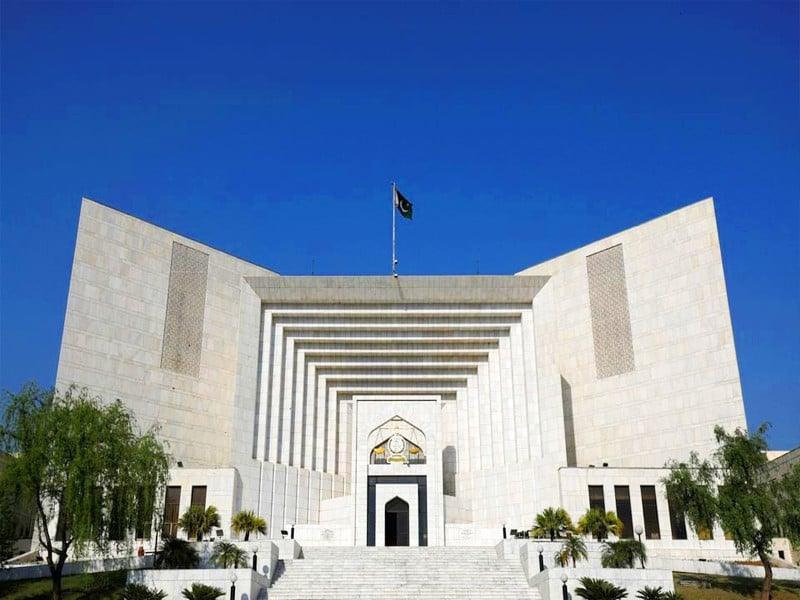Justice Jamal Khan Mandokhail said on Wednesday that the five judges of the Supreme Court were unanimous in their decision that civilians could not be tried in military courts.
He made these remarks during the hearing of an intra-short appeal contesting the trial of civilians in the military courts. Judge Mandokhail is part of a constitutional bench of seven members supervising the call, which also includes the Amin-Uud-Din Khan, Muhammad Ali Mazhar, Hassan Azhar Rizvi, Musarat Hilali, Naeem Akhtar Afghan and Shahid Bilal Hassan.
During the procedure, lawyer Faisal Siddiqui argued that there had been three separate decisions of a bench of five members concerning the military courts.
He pointed out that judges Ayesha Malik, Muneeb Akhtar and Yahya Afridi had written individual decisions, but all the judges agreed on basic observations. Siddiqui stressed that when the decisions of the judges align but their reasoning differs, all the reasons are considered to be part of the global decision.
However, he argued that all judges agreed on the key issue that civilians should not be tried under military jurisdiction.
Siddiqui explained that when different judges write distinct opinions in the same case, their reasoning collectively makes part of the final verdict. He rejected the arguments suggesting that the decisions were divided.
Judge Muhammad Ali Mazhar stressed that the judges had written detailed decisions rather than additional notes.
Judge Mandokhail strengthened the argument by declaring that the five judges were in consensus against military trials for civilians.
A key point of discord in the case is whether the anti -terrorist courts (ATC) had officially authorized the transfer of civil suspects to the military guard.
Judge Naeem Afghan wondered if there was an official court of the court allowing such transfers.
Siddiqui replied that if certain transfer orders existed, they did not include clear justification.
He also argued that a suspect could only be given to the military authorities after official accusations were supervised against them.
The lawyer stressed that the transfer of civilians to military custody based solely on a police report or an initial complaint was legally questionable.
Siddiqui said that the Supreme Court could declare unconstitutional civilian trials without necessarily reducing the army law sections.
He said that the court had previously judged in similar cases that a law could remain in place while certain requests there were deemed illegal.
Judge Muhammad Ali Mazhar also commented on the limits of calls in military judicial affairs, noting that those who are already judged under the military jurisdiction could not repeat their affairs before the civil courts.
He stressed that the military courts could not condemn individuals under the official secret law, then refer the case to anti -terrorist courts.
Judge Mandokhail pointed out that the army law had no official provision to record the first information reports (FIR) against civilians.
Siddiqui agreed and argued that before a civilian can be placed in military custody, a magistrate should examine the case and decide whether it should continue under military or anti -terrorism law.
The Supreme Court bench continued its deliberations on the case, Judge Amicin Khan declaring that the courts had to determine their own jurisdiction before continuing any case.
Siddiqui warned that if the right of appeal was limited in these cases, this could create a dangerous legal precedent.
He also rejected the argument that no objection was initially raised, the court could neglect jurisdictional concerns.
The court postponed the hearing, with other arguments expected during the next session.
During yesterday’s hearing, the Supreme Court of Pakistan referred to the former general chief of the army (Retd.) Qamar Javed Bajwa’s Extension while hearing a case on military trials for civilians, release the debate on previous previous ones.




